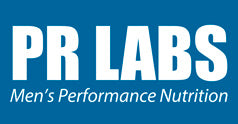Navigating Prostate and Constipation: A Men’s Health Guide
Welcome to a thorough guide focused on an important aspect of men's health: navigating prostate issues and constipation. As men cross the 40-year threshold, staying informed about these health concerns becomes increasingly vital. Here we'll walk through the core knowledge you need about the role of the prostate and simple, proactive steps you can take to maintain your well-being.
Understanding the Prostate's Role in Health
Often only mentioned when problems arise, the prostate gland plays a pivotal role in male health. The prostate is roughly the size of a walnut and sits below the bladder, encircling the urethra—the tube through which urine and semen exit the body. Its main job is producing fluid that, combined with sperm from the testicles, creates semen.
Why should you care about prostate health? A healthy prostate contributes to overall urinary and sexual function. Issues with this gland can lead to a range of symptoms and complications, including effects on bowel movements and a connection to constipation.
To ensure your prostate remains healthy, consider these aspects of your lifestyle:
- Regular exercise: Staying active supports overall health, including that of your prostate.
- Diet: A balanced diet rich in fruits, vegetables, and fiber can be beneficial.
- Regular check-ups: Especially after hitting 40, regular medical check-ups can catch prostate issues early on.
By understanding your prostate's role and taking simple steps to care for it, you'll be better positioned to maintain your health and potentially prevent uncomfortable and serious conditions down the line.
In our next section, we will explore how problems with the prostate, specifically how an enlarged prostate and constipation are related, and what symptoms you should be on the lookout for. Stay tuned to learn how to effectively manage these issues for a better quality of life.
Identifying and Understanding The Link between Swollen Prostate and Constipation
When it comes to men's health, understanding the signs of prostate issues is crucial, especially as they can often affect bowel movements. An enlarged or swollen prostate can press against the rectum, leading to constipation. By being aware of these symptoms, you can take early actions to maintain your health.
Common Signs of Prostate Issues Affecting Bowel Movements
- Feeling that the bladder isn't completely empty after urinating
- Increased frequency of urination, especially at night
- A weak or interrupted urinary stream
- Difficulty initiating urination, known as hesitancy
- Urgent need to urinate
Symptoms of Constipation Linked to Prostate Issues
- Decreased frequency of bowel movements
- Straining to pass stools
- Hard or lumpy stools
- A sensation of an incomplete bowel movement
- Discomfort or pain in the belly
When these symptoms are noticed, it’s essential to approach a healthcare provider. The relationship between prostate and constipation can often be managed with the right advice and treatment. It’s particularly important to seek medical advice if you experience any of the following:
- Blood in urine or stools
- Severe pain while urinating or passing stools
- Unexplained weight loss
- Constant fatigue
- Persistent discomfort in the lower abdomen
Medical attention can help rule out serious conditions and provide effective management strategies.
Professional and At-Home Management Strategies
Caring for your prostate health involves everyday choices. Here's a blend of strategies to help keep your prostate in top shape:
- Stay Active: Regular exercise helps maintain a healthy weight, which is critical for prostate health. Engaging in physical activity supports overall well-being.
- Healthy Diet: A diet with an emphasis on antioxidant-rich fruits, vegetables, and whole grains can be good for your prostate. Keep a balanced approach to nourishment.
- Hydration: Drinking enough water is key, but remember to moderate caffeine and alcohol intake.
- Regular Check-Ups: Ongoing dialogue with your doctor about prostate health is crucial, including the possibility of PSA (Prostate-Specific Antigen) tests.
- Manage Stress: Addressing stress through mindfulness or relaxation techniques can markedly benefit overall health.
Consult with healthcare providers for tailored advice or treatment plans if faced with prostate issues.
Supplementation for Prostate Health
Supplements can play a supporting role in maintaining prostate health:
- Targeted Support: Ingredients such as saw palmetto and green tea extract may support the prostate.
- Antioxidant Boost: To combat oxidative stress, consider ingredients like quercetin and grape seed extract.
- Inflammation Reduction: Components like turmeric might help keep inflammation in check.
As always, speak to your healthcare professional before starting any new regimen to ensure compatibility with your individual health needs.
Partnering with Experts for Healthy Living
Engaging with healthcare professionals is an integral part of maintaining your prostate health and overall well-being. Here are a few ways to work with experts:
- Regular Medical Check-Ups and Testing: Early detection through routine exams is pivotal.
- Open Dialogue: Share any symptoms or concerns with your healthcare provider.
- Adhering to Professional Advice: Implement the guidance given by your doctor for the best results.
- Staying Informed: Being knowledgeable about men's health helps you have productive discussions with your healthcare team.
This collaboration with health professionals can be a cornerstone of effective prostate management.
Taking Charge of Your Prostate Health
At PR Labs, we’ve collaborated with doctors to bring a unique scientific approach to prostate care, leading us to develop the Prost-P10x with 12 maximum strength ingredients to support urinary flow, inflammation support, healthy prostate size, and better urological health. Take control of your prostate health today!
Join Our Community & Save 10% Off Your First Order
We’ll send you a coupon code for 10% off your first order. Stay on our list
and we’ll keep you updated with tips for optimal health, new product launches, sales, and more!




